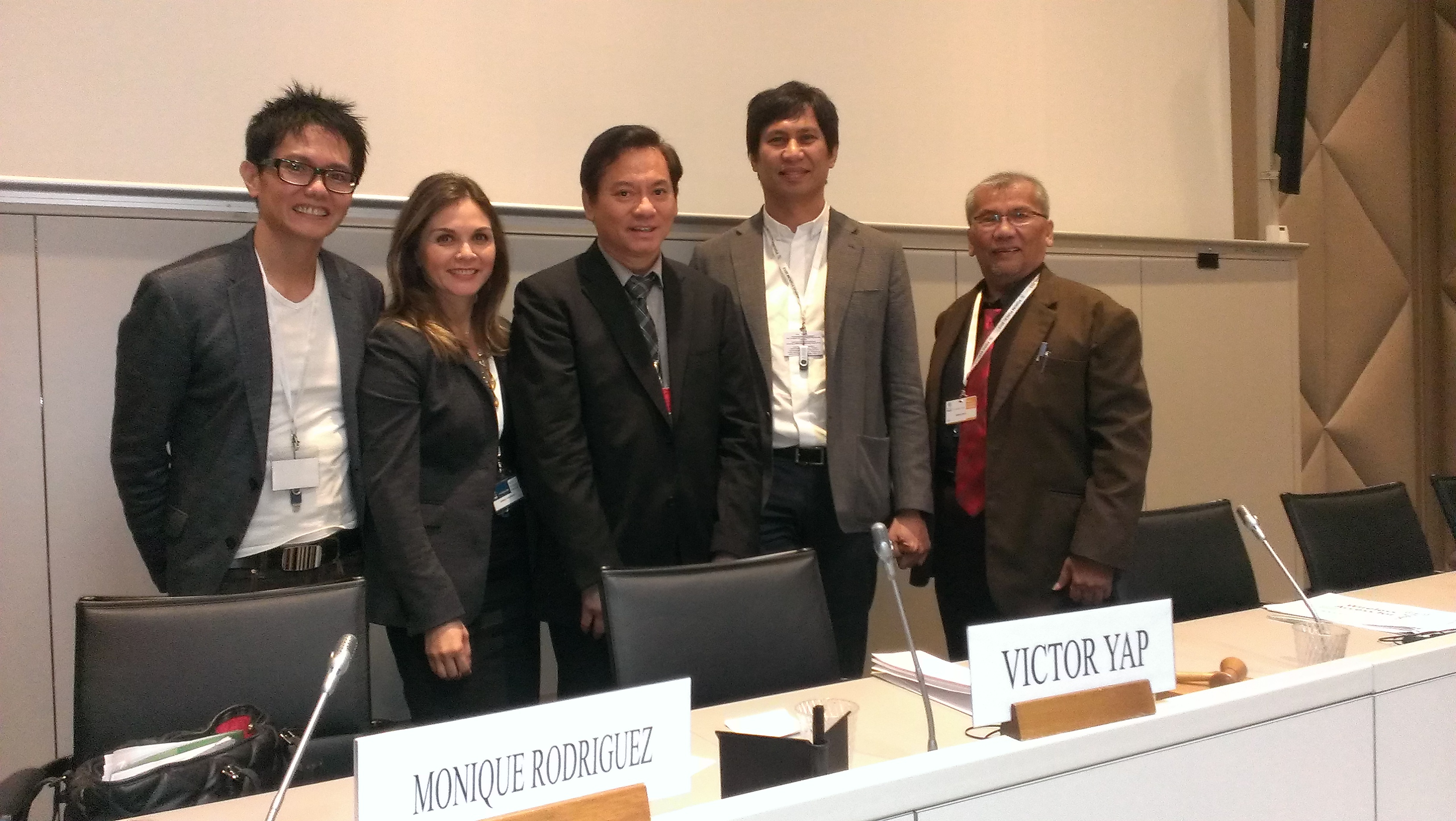Wireless Access for Health Discussed with World Trade Organization Panel

Filipe C. Canlas, Monique Rodriguez, Philippine Ambassador to the WTO, Esteban Cornejos Jr., and Tarlac Province Governor Victor Yap discussed the Wireless Access for Health (WAH) experience at the World Trade Forum panel discussion on Re-inventing Innovation through Public-Private Partnership, October 2, 2013, in Geneva, Switzerland.
Innovation is the heart of the digital economy. The case of Wireless Access for Health (WAH), an e-Health Public-Private Partnership (PPP) in the Philippines, shows that by sharing resources and expertises; businesses, government, and universities can spur innovation to address a compelling need – in this case, the need to modernize the Philippine health information system and help achieve the United Nations’ MDGs on health.
The WAH platform improves data quality and submission by employing various technologies, such as 3G wireless technology, mobile devices, and open source software. It also showcases how PPP bridges the divide amongst government’s bias for the poor, the boldness of entrepreneurs, revolutionary spirit of civil society, and the tempered social conscience of the private sector. After the session, participants are expected to realize that in cases where demand for innovation is high and supply is scarce, PPP remains to be at the heart of every solution.
WAH is the only PPP on e-Health in the Philippines. Since its inception in 2009, its coverage has expanded from 4 municipalities and 1 province to 24 and 6, respectively. From 4 clinics in 2010, it is now present in 44 clinics across the Philippines. It has also added three new partners thereby increasing its diversity to include public, private, NGO, and academic organizations.
Much work on innovation in the digital economy has been credited to the private sector and entrepreneurs.The panel discussed how organizations can pool their resources and expertise to spur innovation that would address a compelling societal need – in this case, the need to modernize the Philippine health information system to help it achieve the MDGs on health and create healthier and happier communities in the long run.
The panel also asked the participants to reflect on the case of not-so-many successful public private partnership technology start-ups that they know of with the experience of the WAH anchoring the discussion. The session followed the question on how public actors, including entrepreneurs, NGOs, and local and national governments and private corporations and academic community can work together in addressing innovation demand and supply gaps in developing countries.
- Login to post comments
- Printer-friendly version
 PDF version
PDF version

